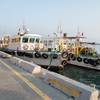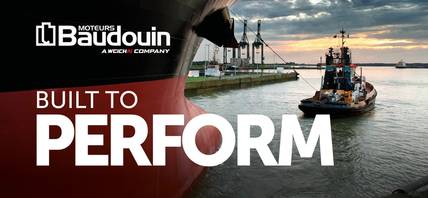How to Start A Towing Vessel NCOE
From the July edition of MarineNews
Last summer, USCG Commander Gregory Case was charged with transforming the Coast Guard’s Towing Vessel National Center of Expertise (TVNCOE) from a plan on paper to a brick and mortar reality. The center is one of seven National Centers of Expertise, and is charged with training towing vessel examiners and inspectors, being a repository of towing vessel expertise and forming and strengthening partnerships with industry. In May 2010 the center was officially opened in Paducah, Kentucky.
With Coast Guard regulations set to move towing vessels from uninspected vessels under Subchapter C to inspected vessels under Subchapter M, CDR Case said, “we knew the towing vessel program was going to go through a large change so it was decided that one of the seven centers of expertise needed to be a towing vessel center.”
“There were several proposed sites, but industry wanted us to be in Paducah, I think because about 60 or 70 percent of towing vessels are on the inland waterways and the Gulf Coast. Although we’re a national center so we cover blue water and brown water.”
“You also have the Ohio, the Tennessee, the Cumberland and the Mississippi River all meeting here so it’s like the hub at the center of the spokes. It seemed like a fairly logical place. So they put me down on the sidewalk in Paducah last summer and said ‘start an office, open up a unit.’”
“The first thing we had to do is identify some property. We found a building that would meet our specifications and then we had to hire a construction company to build it out and get a lease. And then I had to hire a staff.”
Getting the right staffing was the hardest part of opening the office, CDR Case said. “Normally with a unit you would just staff it with active-duty uniformed members and that would be easy. Someone in headquarters would assign them and they’d show up. But in this case they wanted the majority of members of the centers of expertise to be civilians.”
Civilians would provide continuity and industry experience, while uniformed members would be transferring every few years. “The civilians are the corps really. Whereas I’ll come and go, the civilians will stay here and continue to build on experience and strengthen relationships within the industry,” CDR Case said. “Two of my civilian staff members are from industry and two are prior Coast Guard inspectors.”
Both of the center’s Senior Marine Inspectors are industry veterans. Roy Murphy is the former Director of Training at the National River Academy of the United States of America. In that position he trained masters of towing vessels and is a licensed master himself. Until January 2010, he served as Manager of Corporate Training for Kirby Corporation. Steven Douglass is a Massachusetts Maritime Graduate. Douglass previously worked for K-Sea towing and has over ten years petroleum transportation industry experience from the blue water articulated barge fleet.















